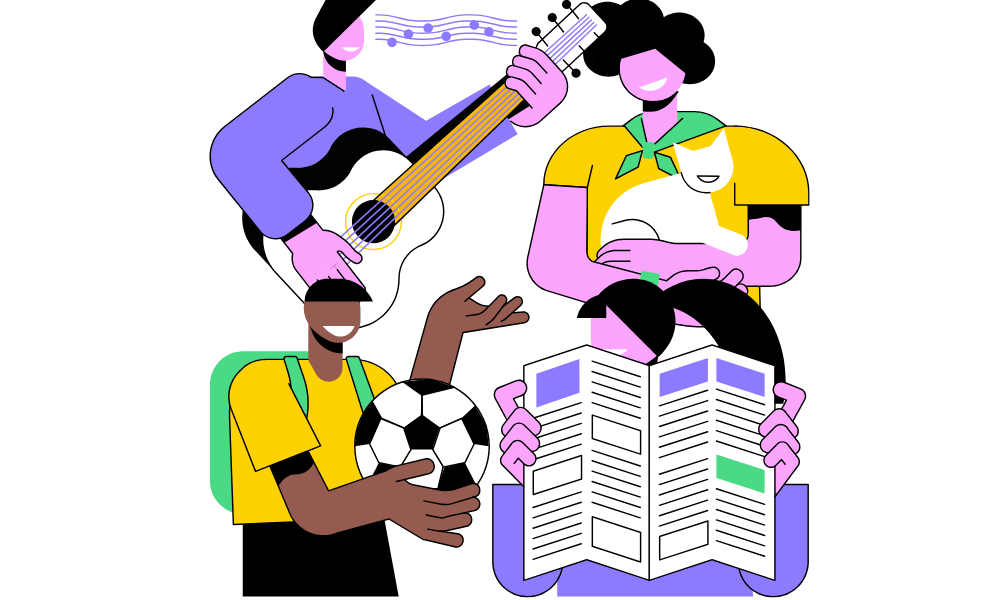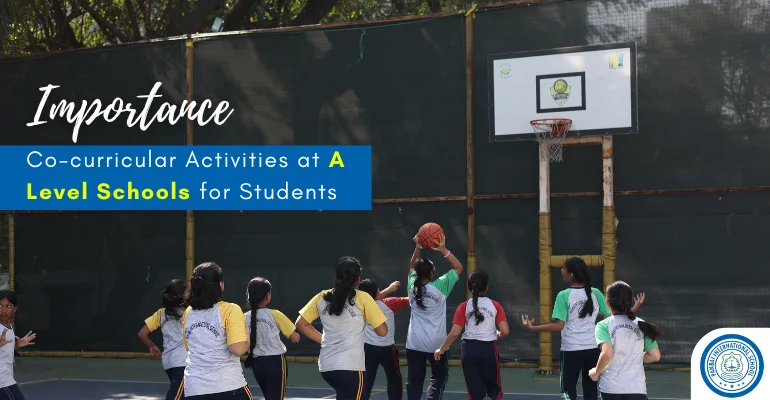Importance of Co Curricular Activities at A Level Schools for Students
March 24, 2025 2025-03-24 12:06Importance of Co Curricular Activities at A Level Schools for Students
In today’s fast-paced and competitive academic landscape, education extends beyond the classroom walls.
While academic excellence remains a priority, schools are now realizing that true learning also involves developing character, confidence, creativity, and collaboration.
This is where the importance of co curricular activities becomes evident, especially at progressive institutions like the Best A Level Schools in Mumbai that strive to nurture well-rounded individuals.
Understanding Co Curricular Activities:


Co curricular activities are structured programs and opportunities provided by schools that complement academic learning.
These include sports, debates, music, dance, drama, community service, robotics, science clubs, student councils, environmental clubs, and much more.
The aim is to provide students with a platform where they can explore interests, discover talents, and develop key life skills.
Unlike extracurricular activities that might take place outside the formal school framework, co curricular activities are integrated into the school’s curriculum and are considered essential to student development.
This makes the importance of co curricular activities not just a trend, but a necessity in modern schooling.
Importance of Co Curricular Activities given below:


Role in Developing Holistic Education
One of the main reasons behind the importance of co curricular activities is that they contribute to a holistic education system. Education is not only about acquiring knowledge; it’s also about developing skills, attitudes, and values that enable students to thrive in real life.
Co curricular programs help students:
- Gain confidence through public speaking or performing on stage.
- Learn time management by balancing academics and activities.
- Build leadership and teamwork abilities through group projects.
- Improve emotional intelligence by interacting with diverse peers.
- Stay physically and mentally fit through sports and yoga.
Schools that focus solely on academics often miss out on helping students build these critical soft skills. That’s why more institutions now integrate these activities deeply into the student experience.
Boosting Academic Performance
Interestingly, participation in co curricular activities does not distract students from academics. On the contrary, studies have shown that students who are actively involved in such activities tend to perform better in exams. This is because these activities enhance memory retention, reduce stress, and encourage discipline.
For example, students who take part in debates become more articulate and improve their writing and analytical skills. Similarly, those involved in drama often show increased empathy and understanding of literature, while science club members sharpen their critical thinking and creativity.
Hence, the importance of co curricular activities also lies in their ability to reinforce academic success through hands-on learning experiences.
Building Social and Emotional Skills
In a world where soft skills are just as valuable as academic scores, co curricular involvement plays a key role in shaping a student’s personality. These activities give students the opportunity to interact with their peers in a non-academic setting, building stronger friendships, and understanding different viewpoints.
Group projects, inter-school competitions, or volunteering programs enhance cooperation, patience, and a sense of social responsibility. Students learn to deal with winning and losing gracefully—skills that are essential in every sphere of life.
Moreover, when students take initiative in clubs or lead school events, it fosters a sense of ownership and boosts self-esteem. This is a significant aspect of emotional development, highlighting again the importance of co curricular activities in schools.
Enhancing Creativity and Innovation
Creativity often finds limited space in traditional academics. However, co curricular platforms open a world where students can experiment, innovate, and express themselves freely.
Whether it’s writing poetry for the school magazine, designing a robot, or choreographing a dance performance, these activities push students to think out of the box.
For A Level students, who are at a crucial stage of academic and personal development, such freedom to explore and create can make a big difference in how they approach problem-solving and handle future challenges.
The importance of co curricular activities lies in this encouragement of original thinking—a skill that future employers and universities highly value.
Preparing for Global Opportunities
Students in A Level schools often aspire to apply for international universities or global internships. These institutions don’t just look at academic records; they evaluate a student’s overall profile. Participation in co curricular activities adds immense weight to college applications and personal statements.
Being a member of a Model United Nations, leading a student initiative, or volunteering for a social cause reflects a student’s leadership qualities, passion, and commitment. It also demonstrates their ability to manage time and multitask effectively.
So, the importance of co curricular activities also extends to giving students a competitive edge in their future pursuits.
Developing Responsible Citizens
Incorporating social service or environmental awareness programs into school activities helps build empathy and a sense of purpose. Whether it’s organizing a cleanliness drive, tree plantation, or fundraisers for a cause, students become more aware of their responsibilities toward society.
This civic engagement, which is often a part of the co curricular framework in modern schools, helps shape future leaders who are not only successful but also socially conscious. The importance of co curricular activities therefore cannot be overlooked when it comes to instilling values in young learners.
Balancing Academics and Life
One of the most valuable life lessons that co curricular activities teach is balance. When students manage rehearsals, meetings, or competitions along with their regular studies, they understand how to organize their time efficiently.
This becomes a lifelong skill. In a world where burnout and stress are common among professionals, learning how to balance tasks at a young age makes students more resilient and adaptable in the future.
Frequently Asked Questions (FAQs)
Ques 1. What is the actual meaning of co curricular activities in schools?
Ans: Co curricular activities are structured, school-based programs like sports, music, drama, debates, and community service that support academic learning while developing social and emotional skills.
Ques 2. Why is the importance of co curricular activities growing in modern education?
Ans: The importance of co curricular activities is rising because they help students develop confidence, communication, leadership, and creativity alongside their academic curriculum.
Ques 3. How do co curricular activities benefit students academically?
Ans: They improve concentration, critical thinking, and motivation, which directly enhance academic performance.
Ques 4. Are co curricular activities helpful for personality development?
Ans: Absolutely. These activities play a major role in building a student’s personality, helping them become more confident, responsible, and self-aware.
Ques 5. How are co curricular activities different from extracurricular ones?
Ans: Co curricular activities are connected to the academic curriculum, while extracurriculars are typically done outside school hours and may not relate directly to academics.




